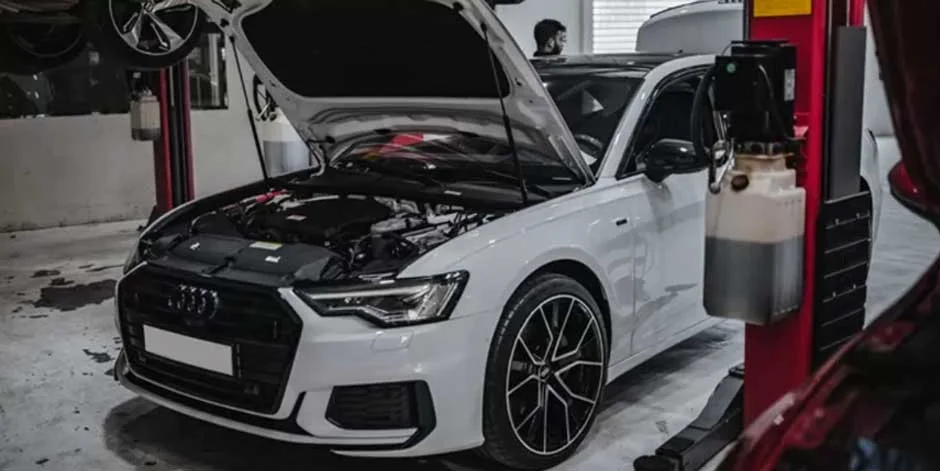Owning an Audi is a symbol of luxury, performance, and sophistication. However, maintaining these high-end vehicles can be quite costly if not done correctly. Many Audi owners make common mistakes, leading to expensive repairs and reduced vehicle longevity. By understanding and avoiding these pitfalls, Audi owners can ensure their cars remain in peak condition and avoid unnecessary expenses.
One of the most common mistakes is ignoring the recommended maintenance schedule. Regular servicing is crucial for keeping an Audi running smoothly and preventing major mechanical issues. Additionally, using non-original equipment manufacturer (OEM) parts can compromise the vehicle’s performance and lead to compatibility issues. Neglecting regular fluid changes, such as engine oil and transmission fluid, can result in significant damage and costly repairs.
Other mistakes include overlooking brake maintenance, failing to check tire pressure, and ignoring warning lights on the dashboard. Skipping battery maintenance and using low-quality fuel can also lead to unexpected breakdowns and reduced performance. Overloading the vehicle and delaying necessary repairs further exacerbate these issues, leading to increased wear and tear on various components.
In this article, we will explore ten costly mistakes Audi owners often make with luxury maintenance and provide tips on how to avoid them. By avoiding these common pitfalls, Audi owners can maintain their vehicles in top condition and enjoy a longer-lasting, high-performing ride.
1. Ignoring the Maintenance Schedule
One of the most common and costly mistakes Audi owners make is ignoring the recommended maintenance schedule. Audi vehicles are precision-engineered machines that require regular servicing to maintain their performance and longevity. The maintenance schedule outlines essential tasks such as oil changes, tire rotations, brake inspections, and fluid checks that must be performed at specific intervals. Skipping or delaying these routine maintenance tasks can lead to significant mechanical issues and expensive repairs.
For instance, neglecting to change the engine oil regularly can result in sludge buildup, which can impair engine performance and lead to costly damage. Similarly, failing to rotate tires can cause uneven wear, reducing tire life and necessitating premature replacement. Ignoring brake inspections can compromise braking performance, putting the driver and passengers at risk and leading to costly brake system repairs.
Adhering to the maintenance schedule also ensures that the vehicle’s warranty remains valid. Many Audi warranties require proof of regular maintenance to cover repairs. Failure to follow the recommended maintenance schedule may result in warranty claims being denied, leaving the owner responsible for the full cost of repairs.
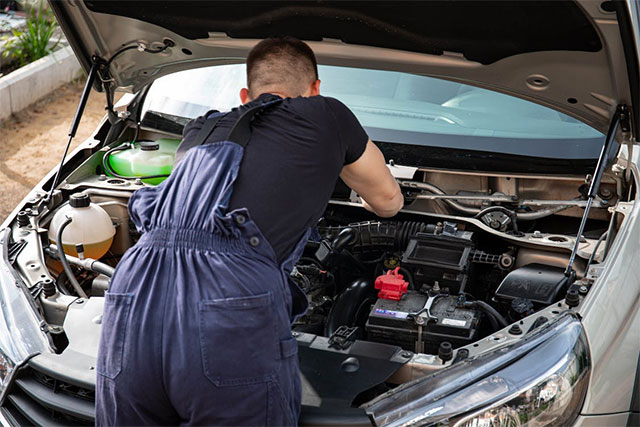
To avoid these costly consequences, Audi owners should familiarize themselves with their vehicle’s maintenance schedule and adhere to it diligently. This involves keeping track of maintenance intervals, scheduling service appointments, and maintaining accurate records of all completed maintenance tasks. Additionally, owners should follow the manufacturer’s recommendations for specific maintenance tasks, such as using the recommended type of oil and fluids.
Regular maintenance not only prevents costly repairs but also enhances the vehicle’s performance and resale value. A well-maintained Audi is more likely to perform optimally, providing a smooth and enjoyable driving experience. When it comes time to sell or trade in the vehicle, a comprehensive maintenance history can significantly increase its resale value, making it more attractive to potential buyers.
Ignoring the maintenance schedule is a costly mistake that can lead to significant mechanical issues and expensive repairs. Audi owners can avoid these consequences by adhering to the recommended maintenance schedule, scheduling regular service appointments, and maintaining accurate records of all completed maintenance tasks. By doing so, they can ensure their Audi remains in peak condition and enjoy a longer-lasting, high-performing vehicle.
2. Using Non-OEM Parts
Using non-original equipment manufacturer (OEM) parts is another costly mistake that Audi owners often make. While aftermarket parts may appear to be a more budget-friendly option, they can lead to a range of issues that ultimately result in higher costs. OEM parts are specifically designed and manufactured to meet the exact specifications and quality standards of Audi vehicles, ensuring optimal performance, reliability, and compatibility.
One of the primary risks of using non-OEM parts is the potential for compatibility issues. Aftermarket parts may not fit as precisely as OEM parts, leading to improper installation and suboptimal performance. For example, using non-OEM brake pads may result in reduced braking efficiency, increased wear on the brake rotors, and a higher risk of brake system failure. Similarly, non-OEM engine components may not function as intended, leading to decreased engine performance and potential damage.
Another concern is the quality and durability of non-OEM parts. OEM parts undergo rigorous testing and quality control processes to ensure they meet Audi’s high standards. In contrast, aftermarket parts may not undergo the same level of scrutiny, resulting in inconsistent quality and reduced durability. This can lead to premature wear and failure of the parts, requiring more frequent replacements and increasing maintenance costs.
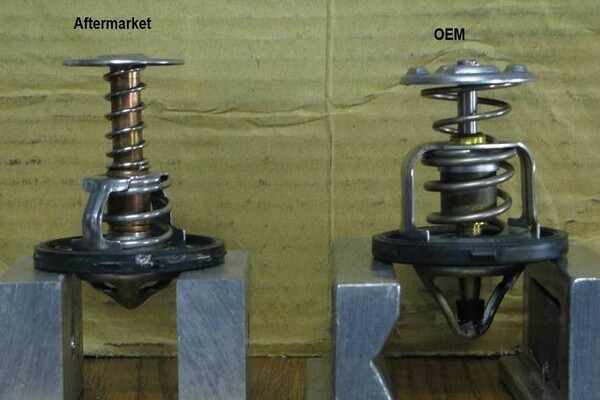
Using non-OEM parts can also void the vehicle’s warranty. Many Audi warranties stipulate that only OEM parts be used for repairs and maintenance. If non-OEM parts are used, the warranty may be invalidated, leaving the owner responsible for the full cost of repairs. This can be particularly costly if major components, such as the engine or transmission, fail.
To avoid these issues, Audi owners should always use OEM parts for repairs and maintenance. While OEM parts may have a higher upfront cost, they offer long-term benefits in terms of performance, reliability, and warranty protection. Owners can ensure they are using OEM parts by sourcing them from authorized Audi dealerships or reputable suppliers that specialize in Audi parts.
Using non-OEM parts is a costly mistake that can lead to compatibility issues, reduced performance, and increased maintenance costs. Audi owners can avoid these problems by using only OEM parts for repairs and maintenance. By doing so, they can ensure their vehicle operates at its best and enjoy peace of mind knowing their warranty remains intact.
3. Neglecting Fluid Changes
Neglecting fluid changes is a common mistake that can lead to significant mechanical issues and costly repairs for Audi owners. Fluids play a crucial role in the proper functioning of various systems within the vehicle, including the engine, transmission, brakes, and cooling system. Regularly changing and maintaining these fluids is essential for ensuring optimal performance and preventing damage.
One of the most critical fluids to maintain is engine oil. Engine oil lubricates the moving parts of the engine, reducing friction and heat buildup. Over time, engine oil can become contaminated with dirt, debris, and combustion byproducts, reducing its effectiveness. Neglecting to change the engine oil at regular intervals can result in sludge buildup, increased wear on engine components, and potential engine failure. Regular oil changes are essential for keeping the engine running smoothly and preventing costly repairs.
Transmission fluid is another important fluid that requires regular maintenance. Transmission fluid lubricates and cools the transmission components, ensuring smooth gear shifts and preventing overheating. Over time, transmission fluid can degrade and become contaminated, leading to reduced performance and potential transmission damage. Regularly changing the transmission fluid is crucial for maintaining the transmission’s health and avoiding costly repairs.
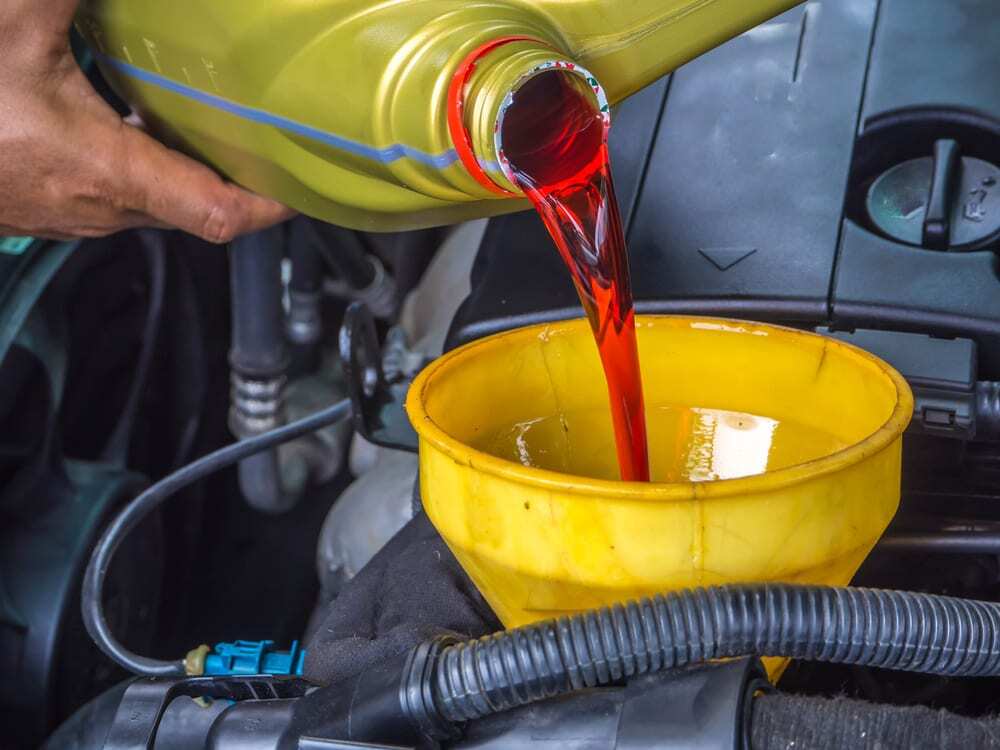
Coolant, also known as antifreeze, is essential for regulating the engine’s temperature and preventing overheating. The coolant absorbs heat from the engine and dissipates it through the radiator. Over time, coolant can break down and lose its effectiveness, leading to overheating and potential engine damage. Regularly checking and replacing coolant is necessary to maintain the engine’s temperature and prevent costly repairs.
Brake fluid is another critical fluid that should not be neglected. Brake fluid transfers force from the brake pedal to the brake components, enabling the vehicle to stop effectively. Over time, brake fluid can absorb moisture, reducing its boiling point and effectiveness. This can lead to decreased braking performance and potential brake system failure. Regularly checking and replacing brake fluid is essential for maintaining safe and efficient braking.
Neglecting fluid changes is a costly mistake that can lead to significant mechanical issues and repairs for Audi owners. Regularly changing and maintaining engine oil, transmission fluid, coolant, and brake fluid is crucial for ensuring optimal performance and preventing damage. By adhering to the recommended maintenance schedule for fluid changes, Audi owners can keep their vehicles running smoothly and avoid unnecessary expenses.
4. Overlooking Brake Maintenance
Brake maintenance is a critical aspect of vehicle maintenance that is often overlooked by Audi owners. The braking system is essential for ensuring the safety of the driver, passengers, and other road users. Neglecting brake maintenance can lead to decreased braking performance, increased stopping distances, and the risk of brake system failure. This can result in costly repairs and, more importantly, jeopardize the safety of the vehicle’s occupants.
One of the most common components that require regular maintenance is the brake pads. Brake pads are responsible for creating friction with the brake rotors, allowing the vehicle to slow down and stop. Over time, brake pads wear down and become less effective. Neglecting to replace worn brake pads can lead to metal-to-metal contact between the brake calipers and rotors, causing damage to the rotors and reducing braking efficiency. Regularly inspecting and replacing brake pads is essential for maintaining optimal braking performance.
Brake rotors also require attention during brake maintenance. Rotors can become warped, scored, or damaged due to heat buildup and wear. Warped or damaged rotors can cause vibrations, reduced braking performance, and increased stopping distances. Regularly inspecting and resurfacing or replacing brake rotors as needed is crucial for maintaining the health of the braking system.
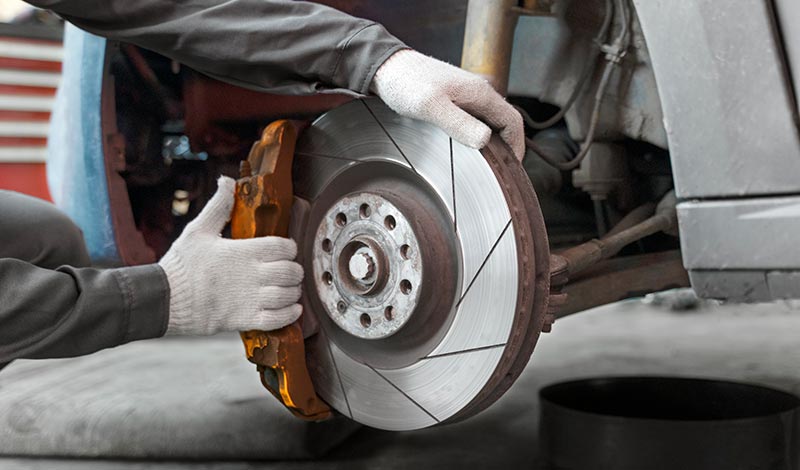
Brake fluid is another critical component that should not be overlooked. Brake fluid transfers force from the brake pedal to the brake components, enabling the vehicle to stop effectively. Over time, brake fluid can absorb moisture, reducing its boiling point and effectiveness. This can lead to decreased braking performance and potential brake system failure. Regularly checking and replacing brake fluid is essential for maintaining safe and efficient braking.
Neglecting brake maintenance can also lead to issues with other components of the braking system, such as the brake calipers, brake lines, and master cylinder. Regular inspections can help identify potential problems before they become major issues, preventing costly repairs and ensuring the safety of the vehicle.
To avoid the costly consequences of neglected brake maintenance, Audi owners should adhere to the recommended maintenance schedule for their vehicle’s braking system. This includes regular inspections, timely replacement of brake pads and rotors, and regular brake fluid changes. Additionally, any signs of brake problems, such as squeaking, grinding, or vibrations, should be addressed promptly by a qualified technician.
Overlooking brake maintenance is a costly mistake that can lead to decreased braking performance, increased stopping distances, and the risk of brake system failure. Audi owners can avoid these issues by regularly inspecting and maintaining their vehicle’s braking system, ensuring the safety and reliability of their brakes.
5. Failing to Check Tire Pressure
Proper tire maintenance is crucial for the performance, safety, and longevity of a vehicle, and one of the most critical aspects of tire maintenance is maintaining the correct tire pressure. Unfortunately, many Audi owners overlook this simple yet essential task, leading to a range of issues that can result in costly repairs and compromised safety.
One of the primary consequences of failing to check tire pressure regularly is uneven tire wear. Underinflated tires can cause the outer edges of the tire tread to wear more quickly, while overinflated tires can lead to excessive wear in the center of the tread. Uneven tire wear reduces the lifespan of the tires, necessitating premature replacement. Replacing tires more frequently than necessary can be a significant expense for Audi owners.
Improper tire pressure can also negatively impact fuel efficiency. Underinflated tires create more rolling resistance, which requires the engine to work harder and consume more fuel. Overinflated tires, on the other hand, can reduce the tire’s contact with the road, leading to a rougher ride and decreased traction. Both scenarios result in reduced fuel efficiency and higher fuel costs over time.
Additionally, incorrect tire pressure can compromise vehicle handling and safety. Underinflated tires can lead to sluggish handling, decreased responsiveness, and an increased risk of tire blowouts. Overinflated tires can reduce the tire’s grip on the road, especially in wet or slippery conditions, increasing the likelihood of skidding and accidents. Maintaining the correct tire pressure is essential for optimal vehicle performance and ensuring the safety of the driver and passengers.
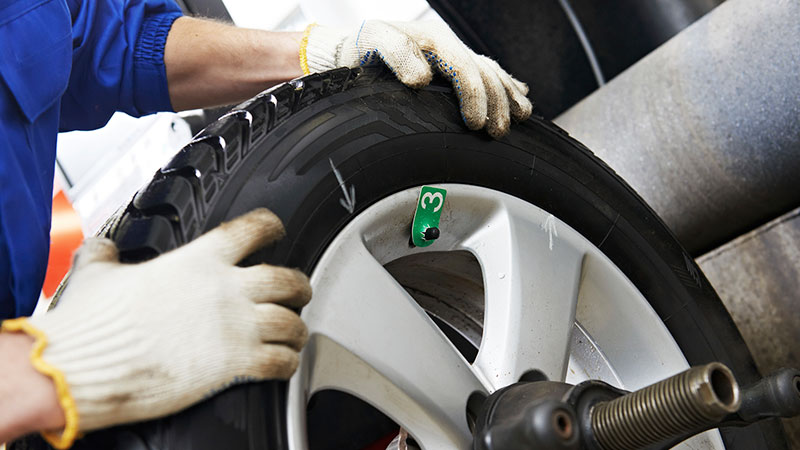
To avoid these costly and potentially dangerous issues, Audi owners should regularly check their tire pressure. It is recommended to check tire pressure at least once a month and before long trips. Tire pressure should be checked when the tires are cold, as driving can cause the tires to heat up and give an inaccurate reading. The recommended tire pressure for an Audi can be found in the owner’s manual or on a sticker located on the driver’s side door jamb.
Audi owners should also invest in a reliable tire pressure gauge and consider using a tire inflator if needed. Many gas stations and service centers offer free or low-cost tire pressure checks and adjustments. By maintaining the correct tire pressure, Audi owners can extend the life of their tires, improve fuel efficiency, and enhance vehicle safety.
Failing to check tire pressure is a costly mistake that can lead to uneven tire wear, reduced fuel efficiency, and compromised vehicle handling. Regularly checking and maintaining the correct tire pressure is essential for the performance and safety of the vehicle. By doing so, Audi owners can avoid unnecessary expenses and ensure a smooth and safe driving experience.
6. Ignoring Warning Lights
Ignoring warning lights on the dashboard is a common mistake that can lead to serious mechanical issues and costly repairs for Audi owners. Modern Audi vehicles are equipped with advanced onboard diagnostic systems that monitor various components and systems, alerting the driver to potential problems through warning lights. These warning lights are designed to indicate issues that require immediate attention to prevent further damage and ensure the safety of the vehicle.
One of the most critical warning lights is the check engine light. This light can indicate a wide range of issues, from minor problems like a loose gas cap to more serious issues like engine misfires or emissions system malfunctions. Ignoring the check engine light can lead to significant engine damage and expensive repairs. When the check engine light comes on, it is essential to have the vehicle diagnosed and repaired promptly by a qualified technician.
Another important warning light is the brake system warning light. This light can indicate low brake fluid levels, worn brake pads, or other issues with the braking system. Ignoring this warning can compromise braking performance and increase the risk of accidents. Addressing brake system issues promptly is crucial for ensuring the safety of the vehicle and its occupants.
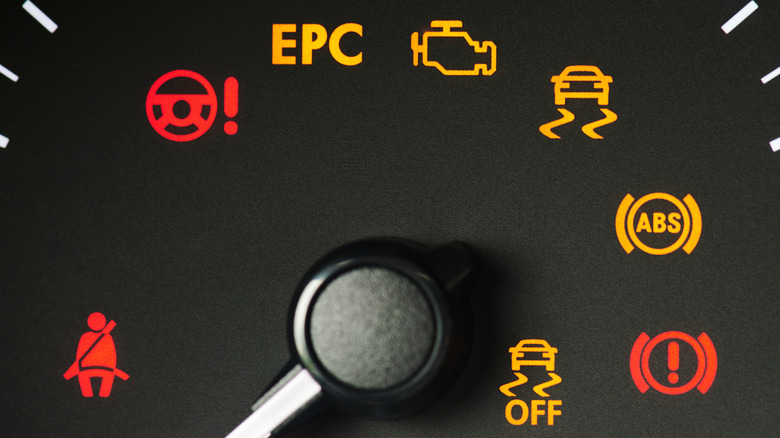
The tire pressure monitoring system (TPMS) warning light is another indicator that should not be ignored. This light alerts the driver to low tire pressure, which can lead to uneven tire wear, reduced fuel efficiency, and increased risk of tire blowouts. Checking and adjusting tire pressure as soon as the TPMS light comes on is essential for maintaining optimal tire performance and safety.
Other warning lights that Audi owners should pay attention to include the battery warning light, oil pressure warning light, coolant temperature warning light, and transmission warning light. Each of these lights indicates a specific issue that requires immediate attention to prevent further damage and ensure the vehicle’s reliability.
To avoid the costly consequences of ignoring warning lights, Audi owners should familiarize themselves with the meaning of each warning light and take prompt action when they appear. The owner’s manual provides detailed information about the various warning lights and their meanings. When a warning light comes on, it is essential to have the vehicle inspected and repaired by a qualified technician as soon as possible.
Ignoring warning lights on the dashboard is a costly mistake that can lead to serious mechanical issues and expensive repairs. Audi owners should familiarize themselves with the meaning of each warning light and take prompt action when they appear. By addressing potential issues early, Audi owners can prevent further damage, ensure the safety of their vehicles, and avoid unnecessary expenses.
7. Skipping Battery Maintenance
Skipping battery maintenance is a common mistake that can result in unexpected breakdowns and costly replacements for Audi owners. The battery is a critical component of a vehicle’s electrical system, providing the power needed to start the engine and operate various electrical accessories. Regular battery maintenance is essential for ensuring reliable performance and preventing issues that can leave drivers stranded.
One of the most important aspects of battery maintenance is checking the battery’s charge level and condition. Over time, batteries can lose their charge and become less effective at holding a charge. This can result in slow engine cranking, dimming headlights, and other electrical issues. Regularly testing the battery’s charge level and voltage can help identify potential problems before they lead to a complete failure. Many auto parts stores and service centers offer free battery testing services, making it easy for Audi owners to monitor their battery’s health.
Another important aspect of battery maintenance is cleaning the battery terminals and connections. Corrosion can build up on the battery terminals, leading to poor electrical connections and reduced performance. Regularly inspecting the battery terminals and cleaning them with a mixture of baking soda and water can help prevent corrosion and ensure a strong electrical connection. It is also important to check the battery cables for any signs of wear or damage and replace them if necessary.
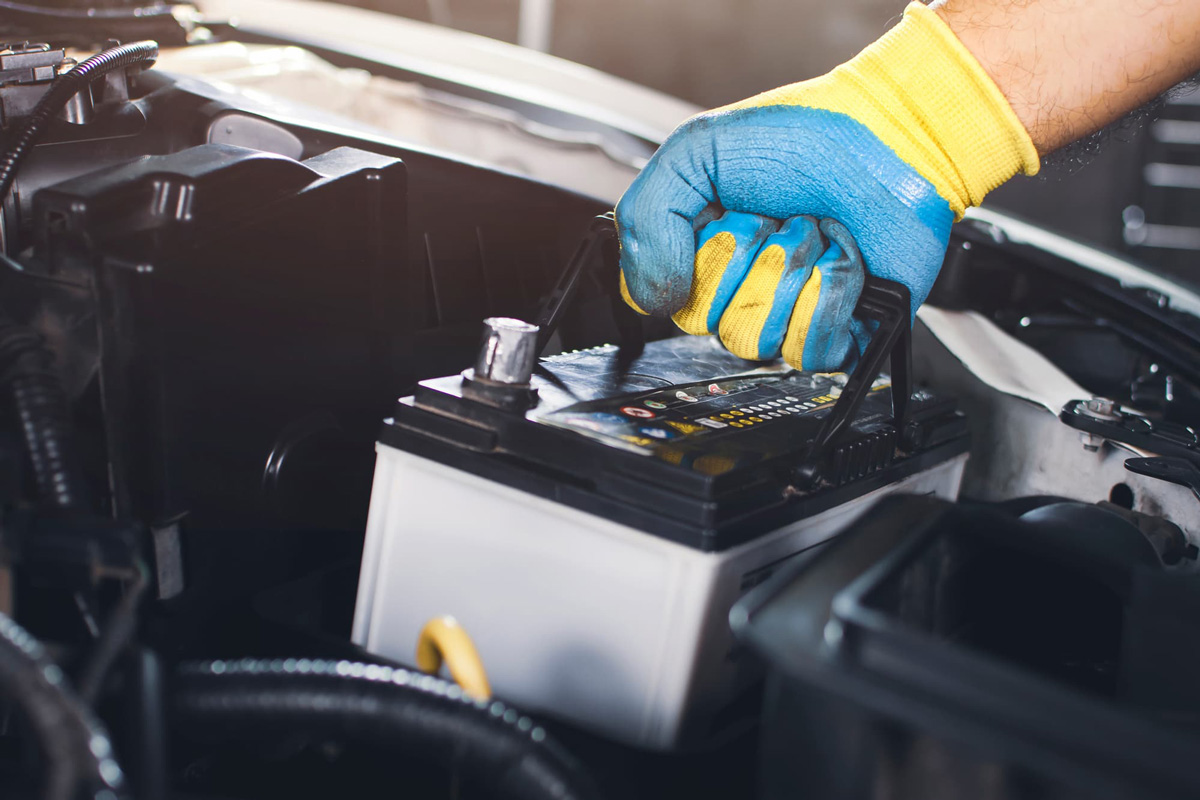
The battery’s fluid levels should also be checked regularly, especially in older batteries that have removable caps. Low fluid levels can cause the battery to overheat and fail. If the fluid levels are low, distilled water can be added to bring them up to the proper level. However, it is essential to exercise caution when handling battery fluids, as they can be corrosive and harmful.
In cold weather, battery performance can be significantly affected. Cold temperatures can reduce the battery’s ability to hold a charge and make it more difficult to start the engine. Audi owners should ensure their battery is in good condition before the onset of cold weather and consider using a battery heater or trickle charger to maintain the battery’s charge during winter months.
The typical lifespan of a car battery is around three to five years. As the battery ages, it becomes less effective at holding a charge and more prone to failure. Audi owners should be proactive in replacing their batteries every four years or sooner if they notice signs of reduced performance. Regularly replacing the battery can help avoid unexpected breakdowns and ensure reliable performance.
Skipping battery maintenance is a costly mistake that can lead to unexpected breakdowns and expensive replacements. Regularly testing the battery’s charge level, cleaning the terminals, checking fluid levels, and replacing the battery as needed are essential steps in maintaining a reliable electrical system. By taking these proactive measures, Audi owners can ensure their battery remains in good condition and avoid unnecessary expenses.
8. Using Low-Quality Fuel
Using low-quality fuel is a costly mistake that can negatively impact the performance and longevity of an Audi vehicle. Audi engines are designed to operate with premium fuel, which has a higher octane rating than regular gasoline. Using low-quality or incorrect fuel can lead to a range of issues, including reduced engine performance, increased emissions, and potential engine damage.
One of the primary reasons for using premium fuel in an Audi is its higher octane rating. Octane rating measures the fuel’s ability to resist “knocking” or “pinging” during combustion. Knocking occurs when the air-fuel mixture in the engine’s cylinders ignites prematurely, causing a knocking or pinging sound. This can lead to increased wear on engine components and, over time, can cause significant damage. Premium fuel’s higher octane rating helps prevent knocking, ensuring smoother and more efficient combustion.
Using low-quality fuel can also lead to the buildup of carbon deposits in the engine. These deposits can accumulate on the intake valves, fuel injectors, and combustion chambers, reducing engine efficiency and performance. Over time, carbon deposits can cause engine misfires, rough idling, and reduced fuel economy. Premium fuels often contain detergent additives that help keep the engine clean and prevent the buildup of harmful deposits.

Another issue with using low-quality fuel is its impact on emissions. Audi vehicles are equipped with advanced emissions control systems designed to reduce harmful pollutants. Using fuel with a lower octane rating or poor-quality additives can interfere with these systems, leading to increased emissions and potential failure of emissions tests. This can result in costly repairs and fines for non-compliance with emissions regulations.
In addition to the performance and emissions concerns, using low-quality fuel can also void the vehicle’s warranty. Audi’s warranty terms often specify the use of premium fuel to ensure optimal performance and reliability. If low-quality fuel is used and it leads to engine damage or other issues, warranty claims may be denied, leaving the owner responsible for the full cost of repairs.
To avoid these issues, Audi owners should always use the recommended premium fuel for their vehicle. Premium fuel ensures optimal engine performance, prevents knocking, reduces carbon deposits, and maintains compliance with emissions regulations. While premium fuel may be more expensive at the pump, the long-term benefits outweigh the initial cost. By using premium fuel, Audi owners can protect their engines, maintain optimal performance, and avoid costly repairs.
Using low-quality fuel is a costly mistake that can lead to engine knocking, carbon buildup, increased emissions, and potential warranty issues. Audi owners should always use the recommended premium fuel to ensure their vehicles perform at their best and enjoy a longer lifespan. By investing in high-quality fuel, Audi owners can avoid unnecessary expenses and keep their vehicles running smoothly.
9. Overloading the Vehicle
Overloading an Audi is a common mistake that can have serious consequences for the vehicle’s performance, safety, and longevity. Every vehicle has a specified weight capacity, which includes the weight of the passengers, cargo, and any additional accessories. Exceeding this weight capacity can put excessive strain on various components, leading to increased wear and tear and potentially costly repairs.
One of the primary issues caused by overloading is the strain it places on the suspension system. The suspension is designed to support a specific weight, and exceeding this limit can cause the suspension components to wear out prematurely. Overloading can lead to sagging springs, damaged shock absorbers, and compromised handling. A damaged suspension system can result in a rough and uncomfortable ride, reduced stability, and increased risk of accidents.
The braking system is also affected by overloading. The added weight increases the braking distance, reducing the vehicle’s ability to stop quickly and safely. Overloading can cause the brake pads and rotors to overheat, leading to increased wear and potential brake failure. Ensuring that the vehicle is not overloaded is crucial for maintaining effective braking performance and ensuring the safety of the driver and passengers.

Tires are another component that can be compromised by overloading. Exceeding the weight capacity can cause the tires to overheat and wear out more quickly. Overloaded tires are more prone to blowouts, which can result in loss of control and accidents. Regularly checking the tire pressure and ensuring that the load is within the specified limits can help prevent tire-related issues and extend the lifespan of the tires.
The engine and transmission are also put under additional stress when the vehicle is overloaded. The added weight requires more power to accelerate and maintain speed, leading to increased fuel consumption and wear on the engine and transmission components. Over time, this added strain can result in decreased performance and potential mechanical failures.
To avoid the costly consequences of overloading, Audi owners should always adhere to the vehicle’s specified weight capacity. This information can be found in the owner’s manual or on a sticker located on the driver’s side door jamb. When carrying heavy loads, it is important to distribute the weight evenly and avoid placing excessive weight on one side of the vehicle.
Overloading an Audi can lead to increased wear and tear on the suspension, braking system, tires, engine, and transmission. Audi owners should always adhere to the specified weight capacity to ensure their vehicle remains in optimal condition and avoid unnecessary repairs. By being mindful of the vehicle’s weight limits, owners can maintain their Audi’s performance, safety, and longevity.
10. Delaying Repairs
Delaying necessary repairs is a costly mistake that can lead to more extensive damage and higher repair costs for Audi owners. When issues with the vehicle are identified, addressing them promptly is essential to prevent minor problems from escalating into major ones. Ignoring or postponing repairs can result in increased wear on other components, compromised safety, and potentially more significant mechanical failures.
One of the primary reasons for delaying repairs is the misconception that minor issues can be ignored without consequence. For example, a small oil leak may seem insignificant, but over time, it can lead to reduced oil levels, increased friction, and potential engine damage. Similarly, a minor noise in the suspension system can indicate worn or damaged components that, if left unaddressed, can lead to more serious issues affecting the vehicle’s handling and safety.
Delaying repairs can also impact the vehicle’s resale value. Prospective buyers often look for well-maintained vehicles with a complete service history. A vehicle with unresolved issues or a history of delayed repairs may be perceived as less reliable and worth less. By addressing repairs promptly, Audi owners can maintain their vehicle’s value and make it more attractive to potential buyers.
Another consequence of delaying repairs is the potential for increased repair costs. Minor issues that are relatively inexpensive to fix can become more complex and costly if left unattended. For example, ignoring a warning light related to the engine or transmission can result in more extensive damage, requiring costly repairs or even component replacement. Addressing problems early can save money in the long run and prevent unexpected breakdowns.
Delaying repairs can also compromise the safety of the vehicle. Issues with critical systems such as brakes, tires, and steering should be addressed immediately to ensure the safety of the driver and passengers. Ignoring problems with these systems can increase the risk of accidents and endanger the lives of those in the vehicle and others on the road.
To avoid the costly consequences of delaying repairs, Audi owners should be proactive in addressing any issues as soon as they are identified. This involves paying attention to warning lights, unusual noises, changes in performance, and other signs of potential problems. Regular maintenance and inspections by a qualified technician can help identify issues early and ensure they are resolved promptly.
Delaying necessary repairs is a costly mistake that can lead to more extensive damage, higher repair costs, compromised safety, and reduced resale value. Audi owners should address issues promptly to prevent minor problems from becoming major ones and ensure their vehicles remain in optimal condition. By being proactive in maintaining and repairing their Audi, owners can avoid unnecessary expenses and enjoy a reliable and safe driving experience.

